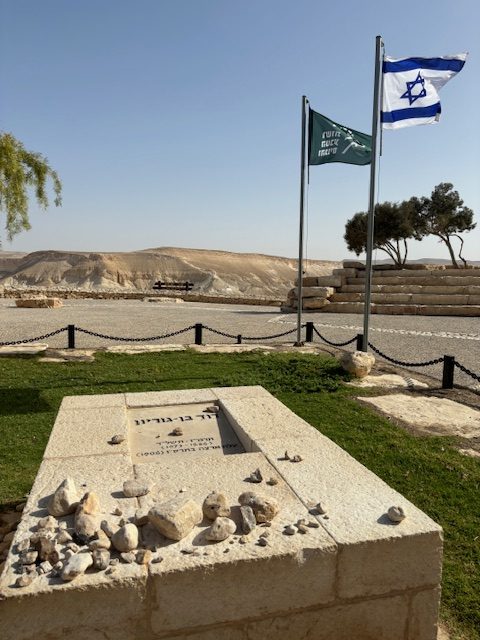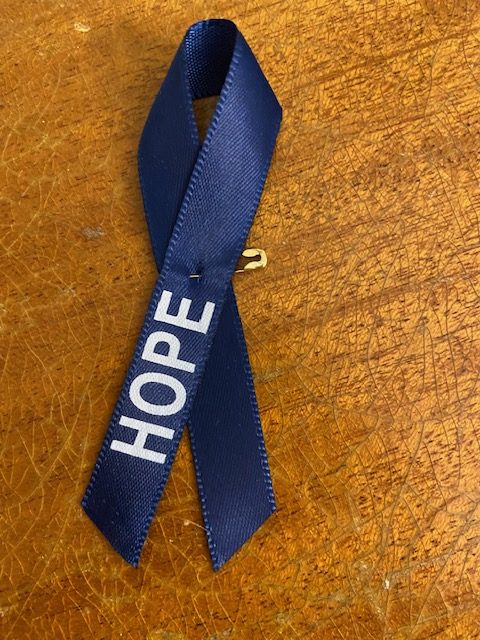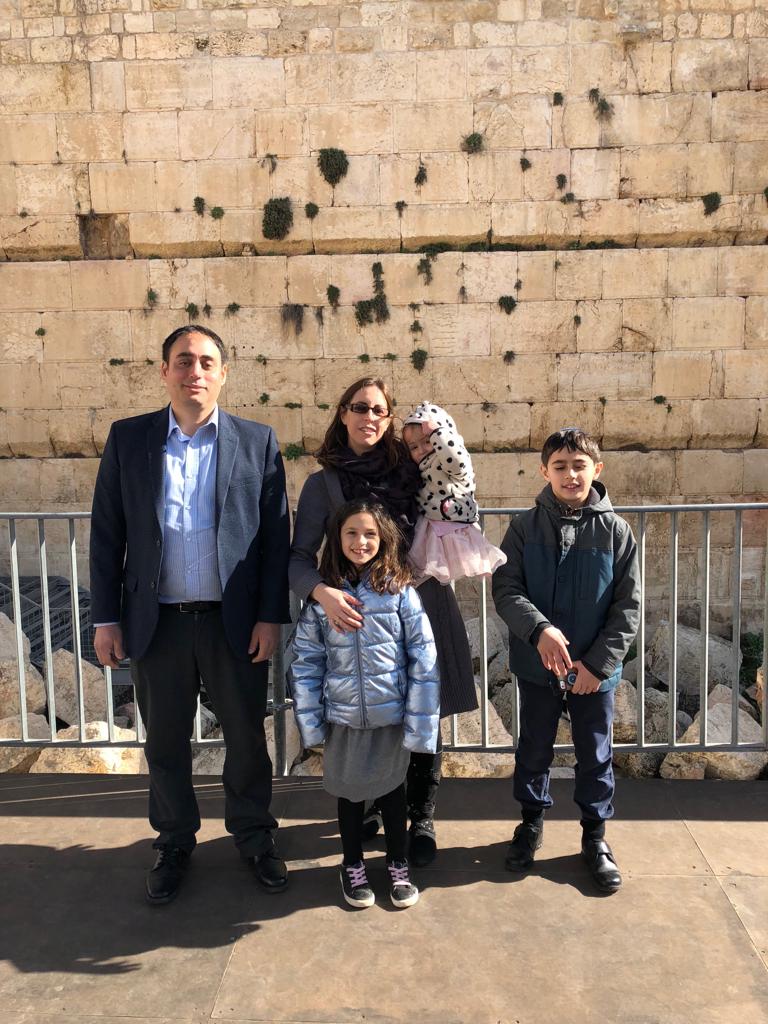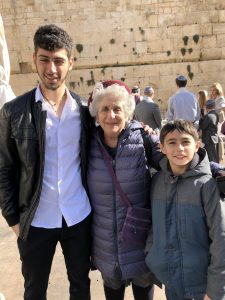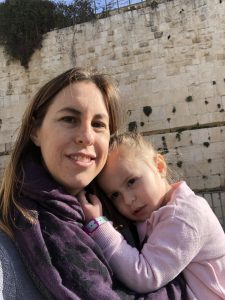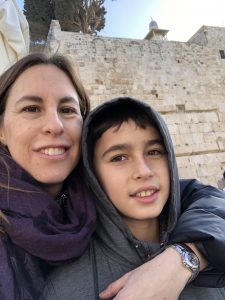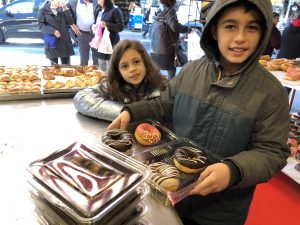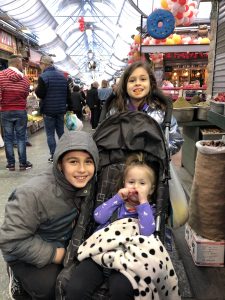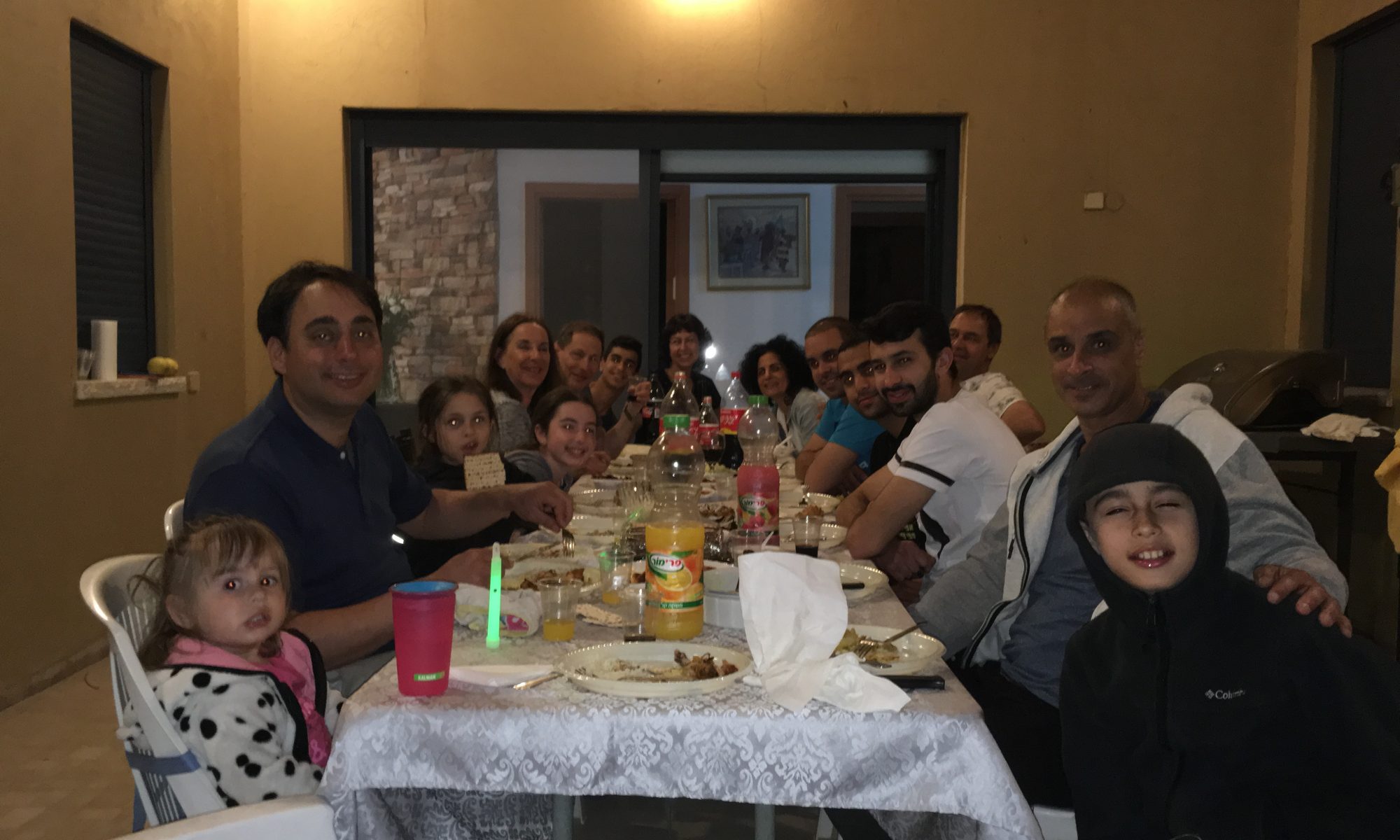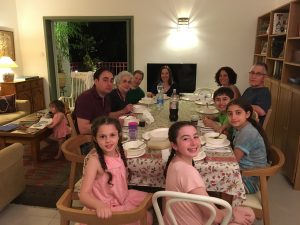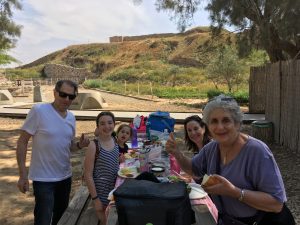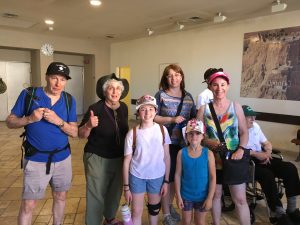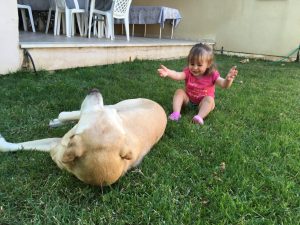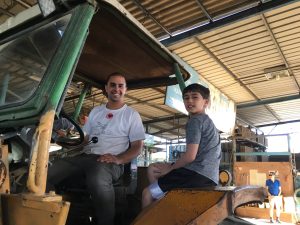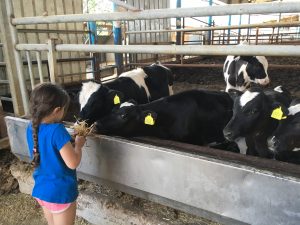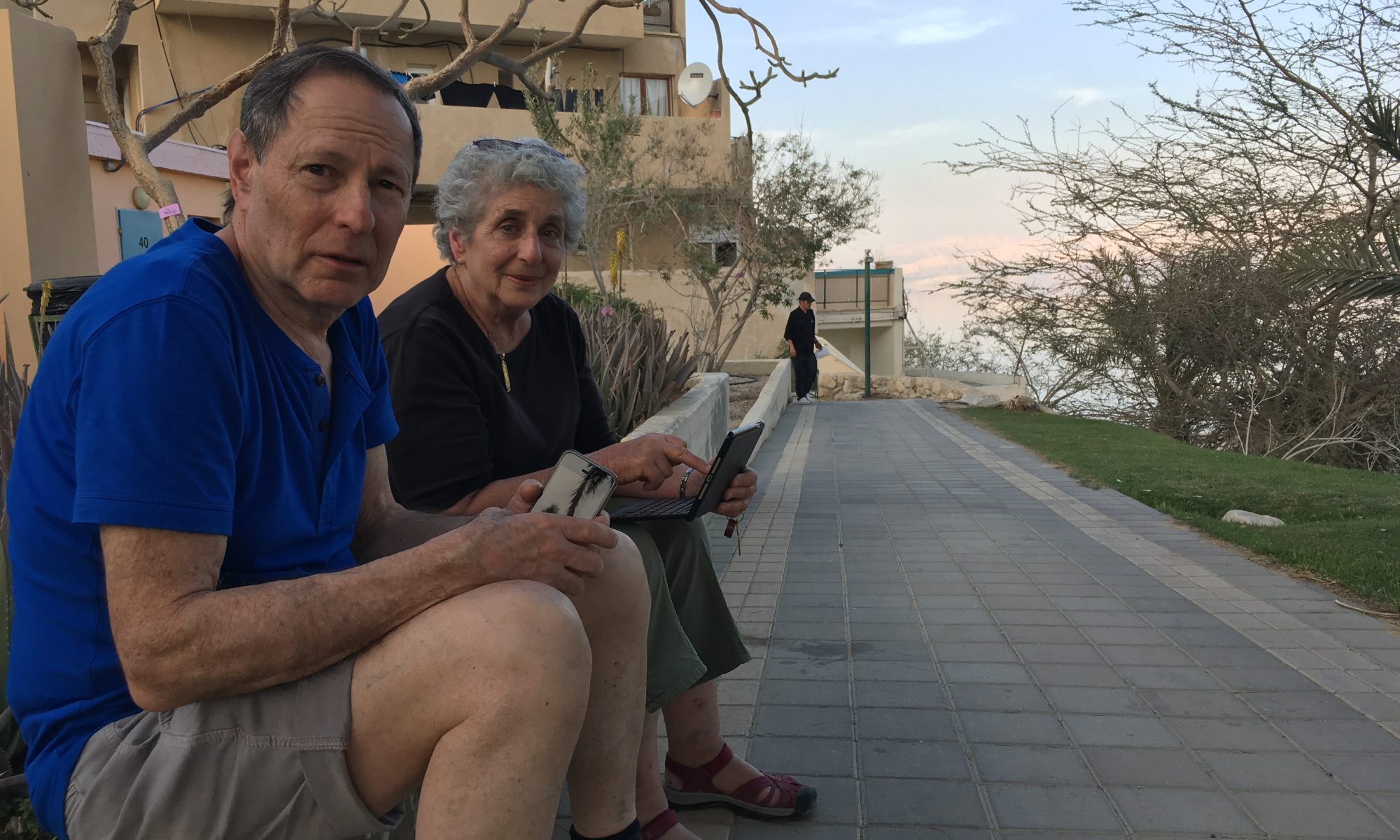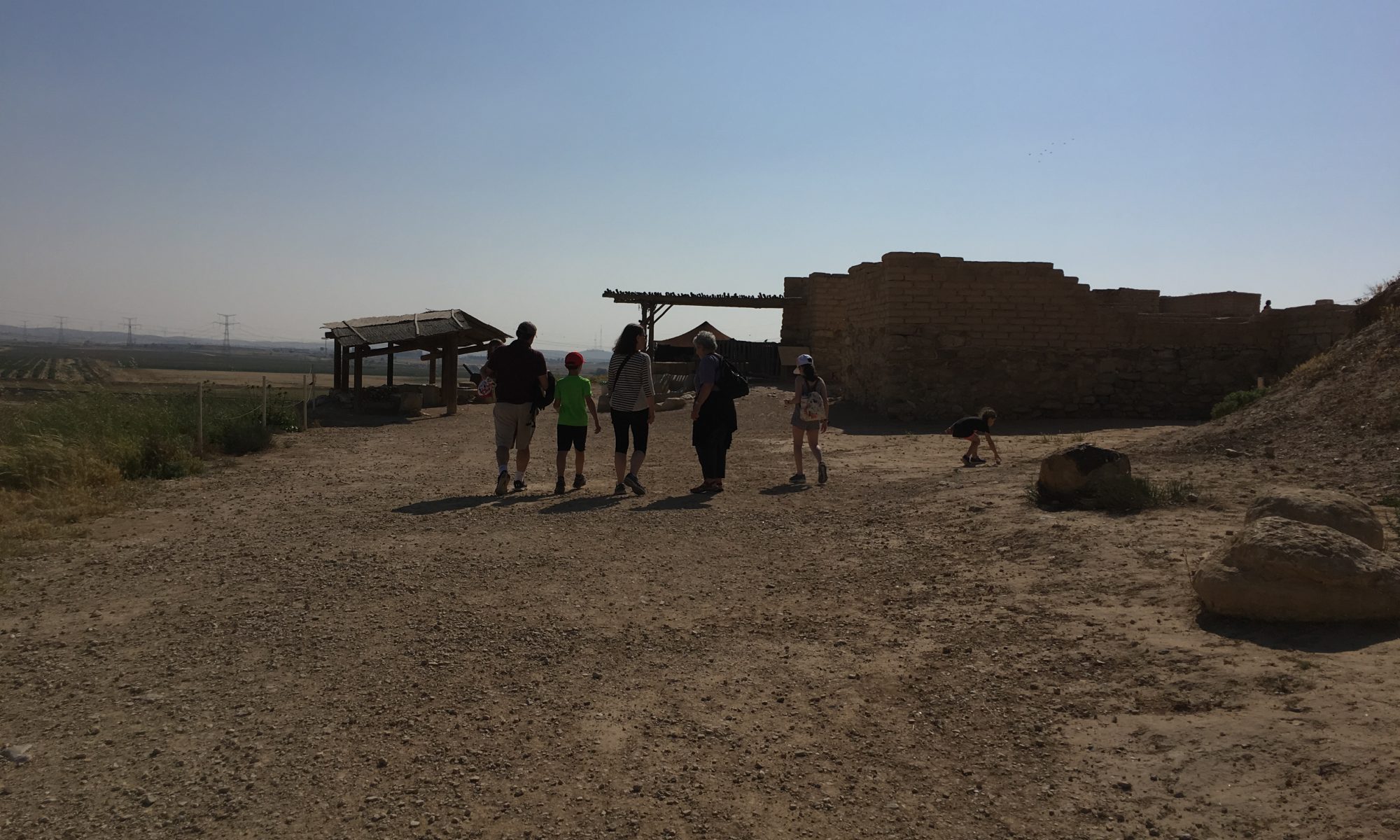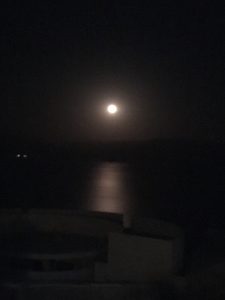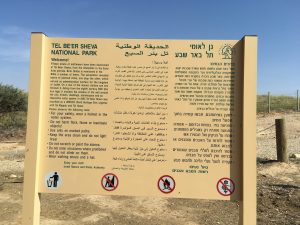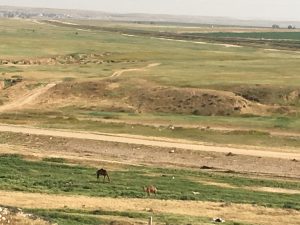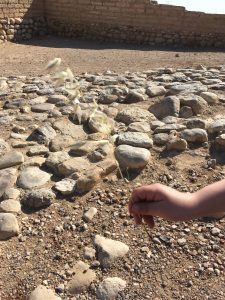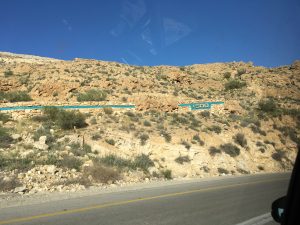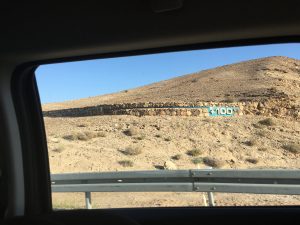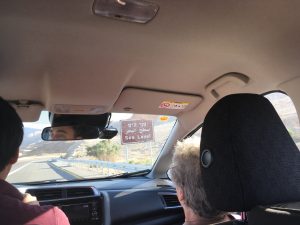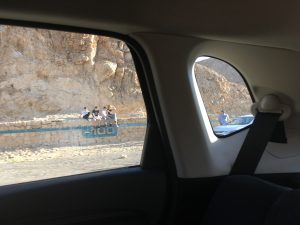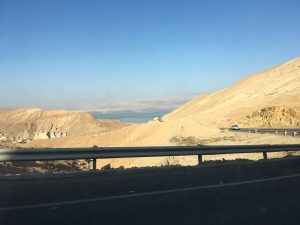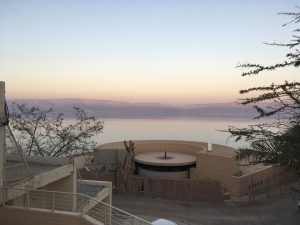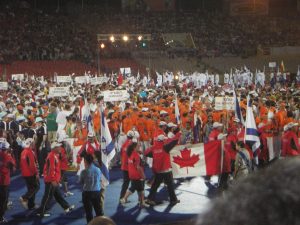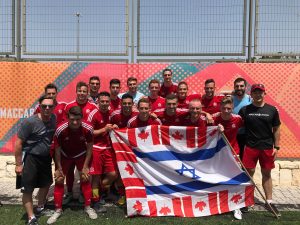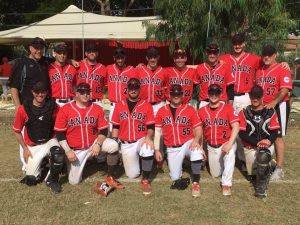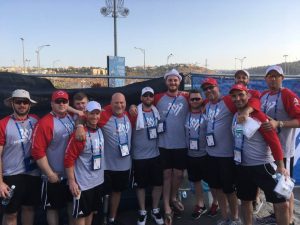Have you ever eaten a Sabra? It’s a prickly pear. On the outside it has rough edges, almost sharp. But once you remove the skin, underneath, is a soft, gentle fruit that is delicious. The sabra is often used as a metaphor for Israelis. It was during my recent visit to Israel that I realized just how true this is: sharp on the outside, but as soft as can be inside. A dichotomy.

A dichotomy is what I would describe as my time in Israel. I experienced highs and lows, great joy followed by sadness, and a sense of security mixed with fear. This is what life has been like in Israel for the past seven months. Until I was there, until I could see it for myself, I would never have believed it.
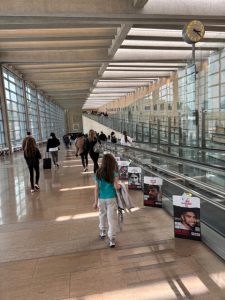
I felt it the moment I arrived. As I strolled towards passport control and saw one of my favourite signs, “Bruchim Ha’baim” (welcome), I walked past sign after sign, names, faces, ages, of people being held hostage in Gaza. Around the airport were signs warmly welcoming me, surrounded by reminders that over 200 people had been kidnapped. How could I be so excited to arrive in a place I love so much, to be with family and catch up with friends, with all of this suffering?
Instead of letting the sadness, the pain or the fear overtake me, I embraced the dichotomy of what Israel is today and focused on joy. I actively sought out the Israel I know and love, to remind myself why this place is so special.
I am not a fool, and I know that huge numbers of people around the world hate Israel and everything it stands for. It is the home of the Jewish religion, the Jewish people and the Jewish nation. And while it is far from perfect, it’s also the protector of other religions and peoples.
You will find the most advanced, high-tech society that leads the world in innovation, and yet the sidewalks are uneven and it seems like no road is straight. In one neighbourhood there may be an ultra-religious community, while next door are secular Jews. You will eat the freshest, juiciest watermelon in the local market, then step on rotten oranges a block away.
As the traffic light goes green, you had better step on it and drive. If you hesitate, the horns will honk. They will tailgate you and cut you off on the highway. If you aren’t fast enough, you will lose the best parking spot, and grown adults will push a child aside to get their breakfast first. You will be yelled at for no apparent reason, and good luck finding anyone who will stand in an orderly line.
But.
They will give you the shirt off their back in an instant. If you are hurt, they will stop and help you. They will give you some extra chips and salads, just to make sure you eat enough. Ask for directions, and you will get a story about how their brother’s wife’s aunt lived in the house next door. Smile and you will get a smile back. They will give their life for you.
How can these two extremes exist together? How can one person be both aggressive and gentle? It is the story of Israeli survival. I saw it everywhere I went on this most extraordinary trip.
When you live in a place that you have to fight for and defend every day, maybe you love it just a bit more. You appreciate the land and the people so much more. You need to be tough, and yes, a bit rough around the edges, to survive. But you feel warmth in your heart, and grateful every day, to be living in your ancestral homeland.
Now that I have left Israel, and I’m back to Toronto, so many dichotomous moments are swirling around my head, and I don’t want these memories to fade….
We visited the grave of David Ben Gurion, Israel’s first Prime Minister and a founding father of the nation. He’s buried in his beloved Negev desert, overlooking a canyon. I think about the beauty that surrounds his final resting spot and the fierce battles that must happened throughout history on this exact spot.
We spent a day in Jerusalem, possibly the most fought-over city in the world. I lived here for 6 months, many years ago, and I love to show my kids my favourite spots around the city. As we happily walked along Jaffa street, on our way to the Old City, suddenly we heard sirens. Police cars. Ambulances. Racing past us. One after the next. I froze. I was terrified. My kids had no idea, but I knew there must have been a terrorist attack nearby. I was right. We never made it to the Old City. We pivoted and instead visited the pedestrian mall and a market. We went from fear to joy in a matter of minutes.
The beaches of Tel Aviv are of the most beautiful in the world. This is the modern Israel, with hundred-year-old Bauhaus buildings mixed with glass-covered skyscrapers. A walk along the soft, white sandy beaches is like stepping into another world. The Mediterranean Sea is a magnificent blue, and on land there are bright white apartments. The city is alive, with hip restaurants and wide boulevards, but also great street food and tiny winding alleyways. Every turns brings you a new surprise.
Then there’s our family and our friends. As they shared with me, there were days not long ago when they ran to a protected stairwell or shelter, and waited, for the sirens to end for the incoming rocket. They cried, not knowing what tomorrow would bring, or when they went to a funeral for a fallen soldier or the shiva of a friend’s child or grandchild.
But our family also celebrated a wedding a few weeks ago, the birth of a new baby a year ago, new jobs, graduations, and so many other personal achievements. We hiked and walked together, we ate one spectacular meal after another together, and we laughed together. Oh did we laugh.
They told me that life must go on. It is the story of the State of Israel. We defend and we protect. We are scared and sometimes we cry. We must be tough, and yes a bit prickly with sharp edges. But we live to the fullest every day. We sing and dance, and smile and laugh. They reminded me, we are warm and kind and caring.
I understand this dichotomy now. I trust it and believe in it. I’m so happy that I was able to be in Israel again. Chazak chazak v’nitchazek. Be strong, be strong, and we will strengthen one another.

